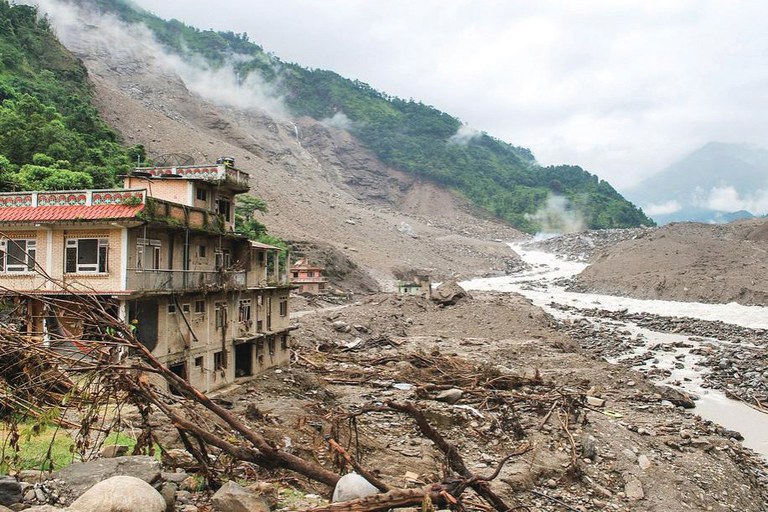Posted: December 2, 2022
Study explores link between earthquakes, rainfall, and food insecurity in Nepal.
Monsoon rainfall combined with heavy earthquake shaking may decrease the supply of nutritious food in Nepal.
That is one of the conclusions of a study led by Heather Randell, assistant professor of rural sociology and demography. She said the findings have implications for Nepal--one of the most disaster-prone countries in the world--and for other countries around the globe, given the increasing frequency and severity of extreme weather events due to climate change.
The scientists examined data from the 2016 Nepal Demographic and Health Survey. This survey contained information on food security, geographic location, and an array of household- and community-level variables. They integrated that information with earthquake intensity and monsoon rainfall data.
Fourteen of Nepal's districts experienced the most severe earthquake impacts in terms of deaths, injuries, and damage to infrastructure. The team hypothesized that these earthquake-affected households would be more vulnerable to drought conditions than households in areas not damaged by the earthquake.
Among households that experienced at least moderate earthquake shaking, more rainfall was positively associated with food insecurity, particularly in steep, mountainous areas. Monsoon rainfall events triggered landslides in areas destabilized by the earthquake, which damaged roads, disrupted the distribution of food aid, and destroyed agricultural land and assets.
In regions that were minimally impacted by the earthquake, low rainfall was associated with increased food insecurity, likely due to lower agricultural productivity in drought conditions.
"Through a better understanding of how compound events impact human health and well-being, we can better identify which groups are most vulnerable," Randell said. "And we will be able to assist communities to recover and build resilience more effectively."
--Amy Duke
Features
Fostering Forests
Across the United States, forests face unprecedented threats, and scientists in Penn State's College of Agricultural Sciences are conducting novel and complex research to conserve them.
Buzzing With Purpose
Community scientists work to protect Pennsylvania's wild bees
Conservation Reimagined
Exploring new approaches to cope with a changing climate



